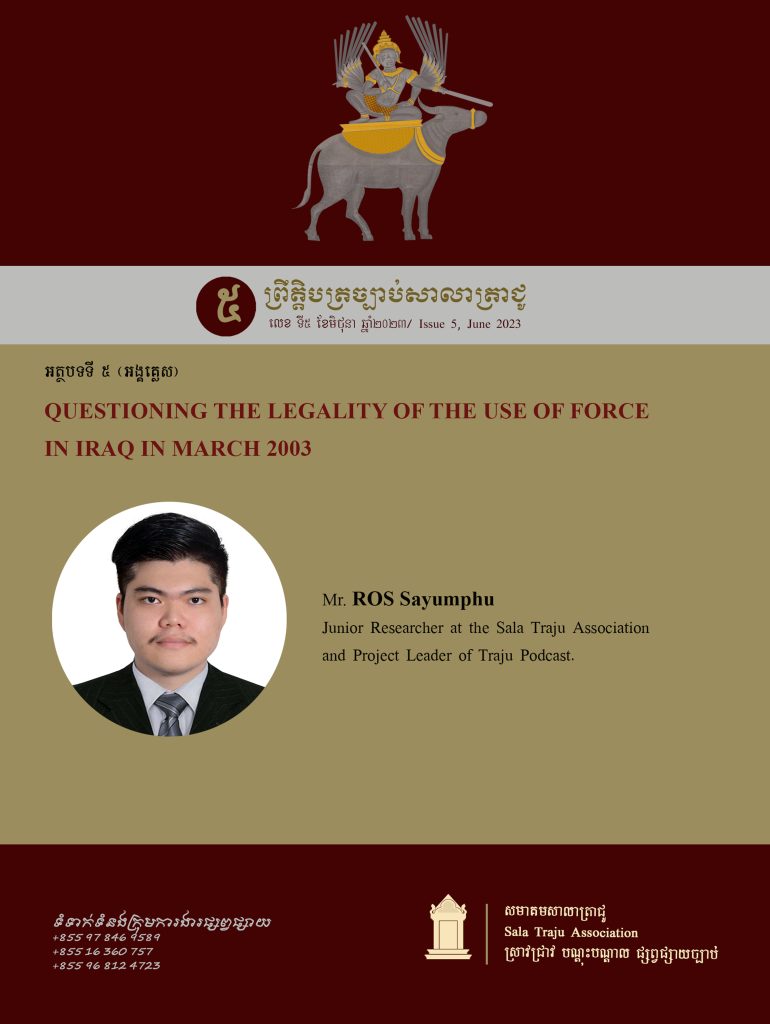
Introduction
The international system exists mainly because of states, and through them, the international legal order is shaped according to their interests. It is complicated to separate politics from international law. The concept of the use of force has been transformed over time due to the influence and domination of states. Several situations challenged the classical interpretation of the use of force, such as the attack on Kosovo by NATO in 1991, the Invasion of Iraq in 2003, and so on. It could be seen that after the cold war finished, the United States had partaken in external wars, and some were considered to violate international legal norms and rules. The UN security council is an executive body under the UN that has the power to make binding decisions and the capability to use force if the magnitude of the situation affects international peace and security. However, from time to time, member states, especially the five permanent members, have disregarded the importance of the council. Likewise, the attack on Iraq in March 2003 was one of the controversies that massively degraded the UNSC’s reputation and status. With the lack of solid legal reasoning, the attack led by the US and the UK was considered not to comply with the existing international law. Based on the Chilcot report, the US was not trying to emphasize the attack through international law. At the same time, the UK has put more effort into finding suitable legal arguments to support its actions. Due to the limitation of time and evidence, the UK justified its action by reviving resolution 678 in support of resolution 1441, in which it concluded that Iraq had made a material breach and should be taken down. This article will analyze the legal framework of the UK’s judgment to interfere in Iraq in 2003 based on the possession of weapons of mass destruction (WMD), which has led to the material breach, and critique their approach to revive resolution 678.
